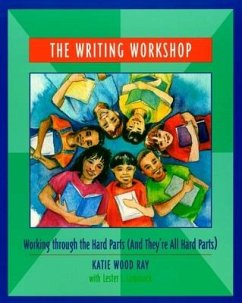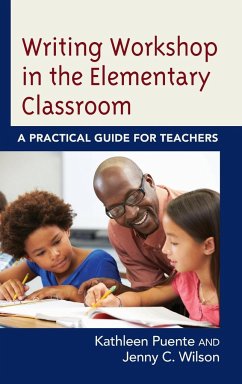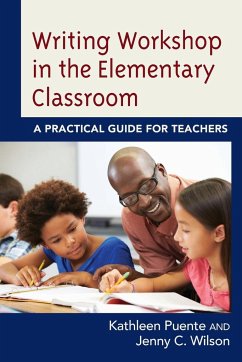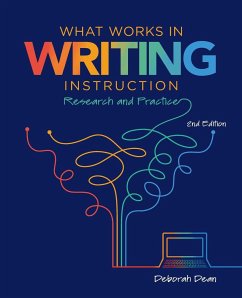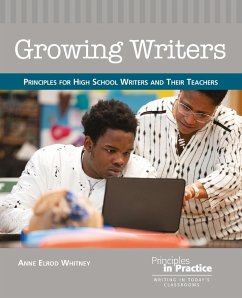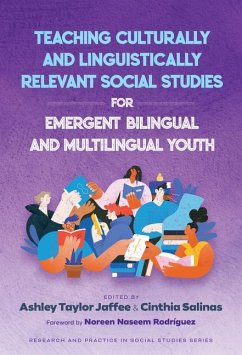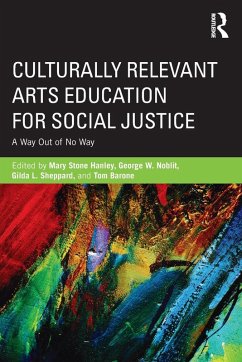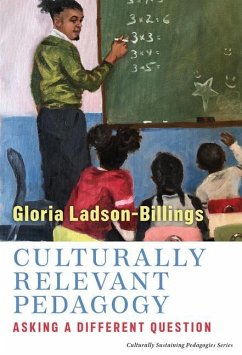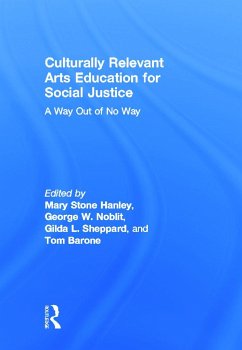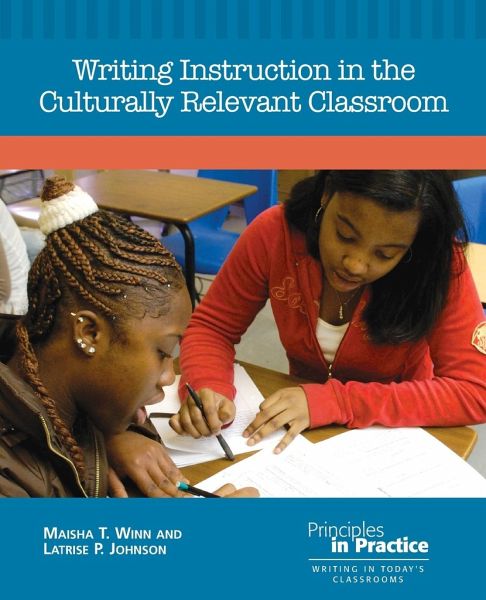
Writing Instruction in the Culturally Relevant Classroom
Versandkostenfrei!
Versandfertig in über 4 Wochen
24,99 €
inkl. MwSt.

PAYBACK Punkte
12 °P sammeln!
This book offers specific ideas for how to teach writing in a culturally relevant way. Drawing on research-based understandings from NCTE Beliefs about the Teaching of Writing, Winn and Johnson demonstrate how these principles support an approach that can help all students succeed. How can we reach all of our students-especially those who have been ignored and underserved in America's classrooms? Maisha T. Winn and Latrise Johnson suggest that culturally relevant pedagogy can make a difference. Although it certainly includes inviting in the voices of those who are generally overlooked in the t...
This book offers specific ideas for how to teach writing in a culturally relevant way. Drawing on research-based understandings from NCTE Beliefs about the Teaching of Writing, Winn and Johnson demonstrate how these principles support an approach that can help all students succeed. How can we reach all of our students-especially those who have been ignored and underserved in America's classrooms? Maisha T. Winn and Latrise Johnson suggest that culturally relevant pedagogy can make a difference. Although it certainly includes inviting in the voices of those who are generally overlooked in the texts and curricula of US schools, culturally relevant teaching also means recognizing and celebrating those students who show up to our classrooms daily, welcoming their voices, demanding their reflection, and encouraging them toward self-discovery. Writing Instruction in the Culturally Relevant Classroom offers specific ideas for how to teach writing well and in a culturally relevant way. Drawing on research-based understandings from NCTE Beliefs about the Teaching of Writing, Winn and Johnson demonstrate how these principles support an approach to writing instruction that can help all students succeed. Through portraits of four thoughtful high school teachers, the authors show how to create an environment for effective learning and teaching in diverse classrooms, helping to answer questions such as: How can I honor students' backgrounds and experiences to help them become better writers?; How can I teach in a culturally responsive way if I don't share cultural identities with my students?; How can I move beyond a "heroes and holidays" approach to culturally relevant pedagogy?; How can I draw on what I already know about good writing instruction to make my classes more culturally relevant?; and How can I create culturally responsive assessment of writing?



